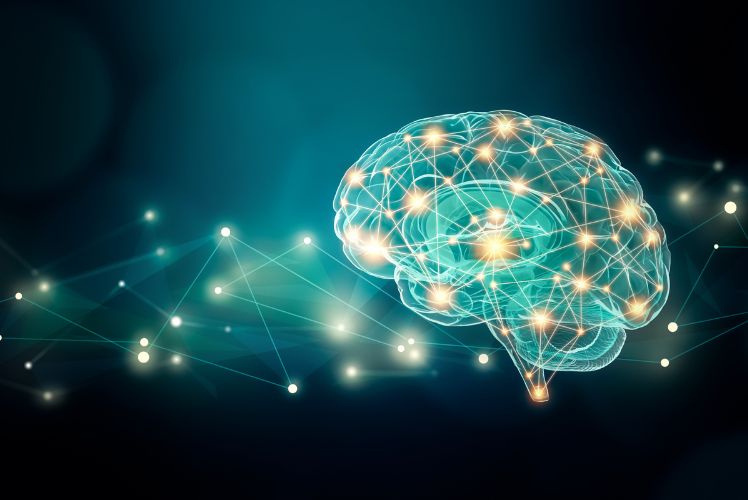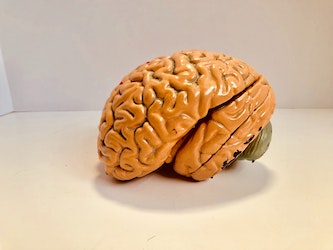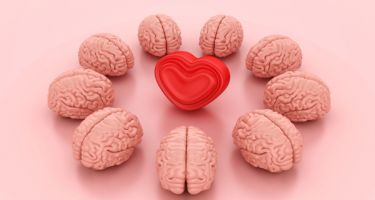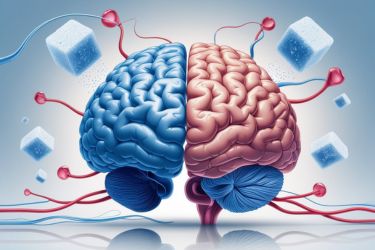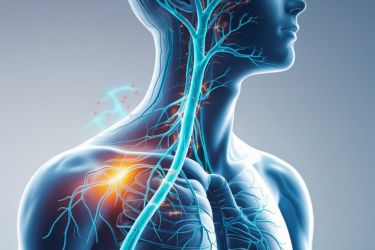In the vast expanse of the universe, one entity stands out as a true marvel: the human brain. It's a powerhouse of complexity and wonder, capable of feats that seem straight out of science fiction. From solving intricate problems to creating breathtaking works of art, the capabilities of the human brain know no bounds.
At the heart of this incredible organ lies a concept that fascinates scientists, philosophers, and everyday people alike: brain capacity. It's the measure of our cognitive potential, the limit of what our brains can achieve. Understanding brain capacity is not just a matter of academic curiosity; it holds profound significance for how we live our lives and interact with the world around us.
Throughout this exploration, we'll delve into the depths of brain capacity, uncovering its mysteries and shedding light on its significance. From the factors that influence it to strategies for enhancing it, we'll embark on a journey to unlock the full potential of our most precious asset—the human mind.
So, buckle up as we traverse the landscape of brain capacity, uncovering its secrets and discovering how we can harness its power to lead more fulfilling lives.
Understanding Brain Capacity
Defining Brain Capacity: At its core, brain capacity encapsulates the sheer potential and limits of our cognitive abilities. It's the sum total of our mental prowess, encompassing everything from memory and problem-solving to creativity and emotional intelligence. Think of it as the ultimate measure of our brain's horsepower—the raw processing power that underpins all our thoughts, actions, and experiences.
The Brain's Structure and Its Influence on Capacity: To comprehend brain capacity fully, we must first grasp the intricacies of the brain's structure. Comprising billions of neurons and trillions of synaptic connections, the brain is a densely woven network of cells that form the foundation of our cognitive abilities. Different regions of the brain specialise in distinct functions, with areas dedicated to tasks such as language processing, motor control, and emotional regulation. This specialised architecture not only enables the brain to perform a vast array of tasks but also influences the overall capacity by determining the efficiency and effectiveness of neural processing.
Exploring Neuroplasticity and Its Role in Determining Capacity: One of the most remarkable features of the brain is its ability to adapt and rewire itself in response to experiences and environmental stimuli—a phenomenon known as neuroplasticity. Far from being a static organ, the brain constantly undergoes structural and functional changes, reshaping its neural networks in response to learning, practice, and environmental influences.
Neuroplasticity plays a crucial role in determining brain capacity by allowing us to acquire new skills, refine existing abilities, and recover from injuries or trauma. By harnessing the power of neuroplasticity through deliberate practice, education, and exposure to enriching experiences, we can expand our cognitive horizons and unlock untapped potential within our brains.
In essence, understanding brain capacity requires delving into the intricate interplay between the brain's structure, neuroplasticity, and the myriad factors that shape our cognitive abilities. By appreciating the complexity of this extraordinary organ and embracing the potential for growth and adaptation, we can embark on a journey of self-discovery and cognitive enhancement that knows no bounds.Factors Affecting Brain Capacity
Genetics: How Our DNA Influences Cognitive Abilities
Our genetic makeup plays a significant role in shaping our cognitive abilities. Genes encode the instructions for building and maintaining the intricate neural networks that form the basis of our mental processes. Variations in specific genes can influence various aspects of cognition, such as memory, attention, and intelligence. While genetics provide the blueprint for our cognitive potential, it's essential to recognise that they interact with environmental factors to shape our brain's development and function.Environment: The Impact of Upbringing, Education, and Surroundings
The environment we grow up in and the experiences we encounter profoundly impact our brain's capacity. From early childhood through adulthood, interactions with caregivers, access to education, socioeconomic status, and exposure to stimulating or stressful environments all leave their mark on neural development. Enriching experiences, such as reading, engaging in intellectual pursuits, and socialising, can enhance cognitive abilities and promote brain health. Conversely, adverse experiences, such as trauma or neglect, can hinder cognitive development and increase the risk of mental health issues.Lifestyle: The Role of Diet, Exercise, and Sleep in Optimising Brain Function
Our daily habits and lifestyle choices also play a crucial role in determining brain capacity. A balanced diet rich in nutrients, antioxidants, and omega-3 fatty acids provides the fuel and building blocks necessary for optimal brain function. Regular physical exercise not only improves cardiovascular health but also boosts blood flow to the brain, stimulates the growth of new neurons, and enhances cognitive performance. Adequate sleep is equally vital, as it allows the brain to consolidate memories, clear toxins, and recharge for the day ahead.
Conversely, poor dietary choices, sedentary behaviour, and sleep deprivation can impair cognitive function and increase the risk of cognitive decline over time. In summary, brain capacity is shaped by a complex interplay of genetic, environmental, and lifestyle factors. While genetics provide the foundation for our cognitive abilities, environmental influences and lifestyle choices can either enhance or detract from our brain's potential. By understanding and optimising these factors, we can unlock the full potential of our brains and lead healthier, more fulfilling lives.
Myth vs. Reality: Debunking Common Misconceptions
Addressing Common Misconceptions about Brain Capacity
The realm of neuroscience is often shrouded in mystery, giving rise to numerous myths and misconceptions about the capabilities of the human brain. These misconceptions can lead to misunderstandings and misguided beliefs about our cognitive abilities. Let's shed light on some of the most prevalent myths surrounding brain capacity and uncover the truth behind them.The Truth Behind the "10% Brain Myth" and Other Misconceptions
One of the most persistent myths about brain capacity is the notion that we only use a fraction of our brain—typically cited as 10%. This belief has been perpetuated by popular culture and self-help gurus, but it couldn't be further from the truth. In reality, modern neuroscience has shown that we use virtually all parts of our brain, albeit not simultaneously. Different regions of the brain are active during different tasks, and even seemingly inactive areas play essential roles in supporting overall brain function.
Another common misconception is that intelligence is fixed and immutable—that our cognitive abilities are predetermined and unchangeable. However, research on neuroplasticity has unequivocally debunked this myth. Our brains possess remarkable adaptive capabilities, allowing us to learn, grow, and develop throughout our lives. With the right strategies and interventions, we can enhance our cognitive abilities and expand our brain's capacity for learning and innovation.
Furthermore, there's a prevailing belief that cognitive decline is an inevitable consequence of aging. While it's true that certain cognitive functions may decline with age, the extent of decline can vary widely among individuals and is influenced by factors such as genetics, lifestyle, and overall brain health. Engaging in mentally stimulating activities, maintaining a healthy lifestyle, and staying socially connected can help mitigate age-related cognitive decline and preserve brain function well into old age.
In conclusion, separating fact from fiction is essential when it comes to understanding brain capacity. By dispelling common myths and misconceptions, we can foster a more accurate and nuanced appreciation of the incredible potential of the human brain. Armed with this knowledge, we can harness the full power of our cognitive abilities and strive for greater achievements in all aspects of our lives.
Strategies to Enhance Brain Capacity
Unlocking the full potential of our brains requires more than just wishful thinking—it demands deliberate effort and strategic interventions. Fortunately, there are several proven strategies that can help us enhance our brain capacity and optimise cognitive function. Let's explore some of the most effective methods for maximising our mental prowess:
Mental Exercises: Stimulate Your Mind
Just as physical exercise strengthens our muscles, mental exercises are essential for keeping our brains sharp and agile. Activities such as puzzles, brain teasers, and games like chess or Sudoku can challenge our cognitive abilities and promote neural plasticity. Additionally, activities that involve creativity, such as painting, writing, or playing a musical instrument, can stimulate different regions of the brain and foster innovation and problem-solving skills.
Continuous Learning: Feed Your Curiosity
The adage "use it or lose it" rings especially true when it comes to brain capacity. Lifelong learning is a powerful tool for expanding our cognitive horizons and keeping our brains in top shape. Whether it's taking up a new hobby, enrolling in an online course, or simply reading books on diverse topics, exposing ourselves to new ideas and information stimulates neural growth and enhances synaptic connections. By embracing a growth mindset and remaining curious and open to new experiences, we can fuel our brains' thirst for knowledge and innovation.
Stress Management: Find Your Zen
Chronic stress can take a toll on our cognitive function, impairing memory, attention, and decision-making abilities. Fortunately, there are numerous techniques for managing stress and promoting mental well-being. Mindfulness meditation, deep breathing exercises, and progressive muscle relaxation are just a few examples of effective stress-reduction techniques that can calm the mind and improve cognitive performance. Additionally, engaging in activities that bring joy and relaxation, such as spending time in nature, practicing yoga, or socialising with loved ones, can help alleviate stress and rejuvenate the brain.
Healthy Habits: Nourish Your Brain
A healthy body is the foundation of a healthy mind, and adopting lifestyle habits that prioritise brain health is crucial for enhancing brain capacity. A balanced diet rich in nutrients such as omega-3 fatty acids, antioxidants, and vitamins B and E supports cognitive function and protects against age-related decline. Regular physical exercise not only improves cardiovascular health but also boosts mood, enhances memory, and promotes neuroplasticity. And let's not forget the importance of quality sleep—adequate restorative sleep is essential for consolidating memories, processing information, and rejuvenating the brain.
Incorporating these strategies into our daily routines can set the stage for long-term cognitive vitality and resilience. By nurturing our brains with mental stimulation, continuous learning, stress management, and healthy habits, we can unlock the full potential of our most precious asset—the human mind.
Case Studies: Remarkable Examples of Brain Capacity
Highlighting Extraordinary Individuals
In the annals of history, there are individuals whose remarkable achievements defy conventional notions of human capability. These pioneers and visionaries serve as shining examples of the boundless potential of the human brain, inspiring us to reach for new heights and push the limits of what we believe is possible.
Discussing Notable Feats
Albert Einstein: Widely regarded as one of the greatest minds of the 20th century, Albert Einstein revolutionised our understanding of the universe with his groundbreaking theories of relativity. His ability to visualise complex concepts and think outside the box paved the way for scientific discoveries that continue to shape our world today.
Leonardo da Vinci: Renowned as a polymath of unparalleled talent, Leonardo da Vinci's contributions spanned art, science, engineering, and anatomy. His keen powers of observation and insatiable curiosity enabled him to create masterpieces like the Mona Lisa while also making significant advancements in fields such as anatomy and engineering.
Temple Grandin: Overcoming the challenges of autism, Temple Grandin emerged as a leading advocate for animal welfare and a pioneer in animal behaviour science. Her unique perspective and ability to think in pictures allowed her to design innovative livestock handling systems that revolutionised the meat industry and improved the lives of countless animals.
Shakuntala Devi: Known as the "Human Computer," Shakuntala Devi astounded the world with her exceptional mathematical abilities. Without the aid of calculators or computers, she could perform complex mental calculations with lightning speed, earning her a place in the Guinness Book of World Records and inspiring generations with her prodigious talent.
These extraordinary individuals serve as reminders of the awe-inspiring capabilities of the human brain. Their stories inspire us to nurture our own cognitive abilities, cultivate our passions, and embrace the power of curiosity and perseverance. By studying their lives and accomplishments, we gain insight into the remarkable potential that resides within each of us, waiting to be unlocked and unleashed upon the world.
Future Perspectives: Unlocking the Full Potential
Exploring Emerging Technologies and Research
As we stand on the cusp of a new era, advancements in technology and neuroscience hold the promise of unlocking the full potential of the human brain like never before. Researchers and innovators around the globe are exploring groundbreaking techniques and technologies aimed at enhancing brain capacity and pushing the boundaries of human cognition.
Neurostimulation: Techniques such as transcranial magnetic stimulation (TMS) and transcranial direct current stimulation (tDCS) offer non-invasive ways to modulate brain activity and enhance cognitive function. These methods show promise for improving memory, attention, and learning abilities, with potential applications ranging from treating neurological disorders to enhancing cognitive performance in healthy individuals.
Brain-Computer Interfaces (BCIs): BCIs enable direct communication between the brain and external devices, opening up possibilities for controlling computers, prosthetic limbs, and other technologies with the power of thought alone. As these interfaces become more sophisticated and accessible, they hold the potential to revolutionise fields such as assistive technology, gaming, and virtual reality, offering new avenues for enhancing brain capacity and human-machine interaction.
Genetic Engineering and Gene Therapy: Advances in genetic engineering and gene therapy hold promise for unlocking the genetic underpinnings of cognitive abilities and potentially enhancing them through targeted interventions. By identifying genes associated with intelligence and cognitive function, researchers may one day develop therapies to enhance brain capacity and mitigate cognitive decline associated with aging and neurological disorders.
Discussing the Potential Implications
The implications of unlocking the full potential of the human brain are vast and far-reaching, spanning fields such as healthcare, education, and beyond.
Healthcare: Improved understanding of the brain's inner workings and the development of targeted interventions could lead to more effective treatments for neurological and psychiatric disorders, enhancing quality of life for millions of people worldwide.
Education: By leveraging emerging technologies and insights from neuroscience, educators may revolutionise learning methods and curriculum design to better cater to individual learning styles and optimise cognitive development in students.
Workforce and Economy: Enhanced cognitive abilities could lead to a more innovative and productive workforce, driving economic growth and fostering creativity and problem-solving in diverse industries.
Ethical and Societal Considerations: As we venture into uncharted territory, it's essential to consider the ethical implications of enhancing brain capacity, including issues related to privacy, consent, and equity. Striking a balance between innovation and responsible stewardship of neuroscientific advancements will be crucial for ensuring positive outcomes for society as a whole.
In the coming years, the journey to unlocking the full potential of the human brain will undoubtedly present challenges and complexities. However, by embracing the spirit of inquiry, collaboration, and ethical responsibility, we can harness the transformative power of neuroscience and technology to unlock new frontiers of human cognition and pave the way for a brighter, more intellectually enriched future.
Comparing Brain Capacity to Modern Computers
In the ever-evolving landscape of technology, the comparison between the human brain and modern computers is a topic of fascination and inquiry. While both are formidable information processing systems, they operate in fundamentally different ways, each with its own strengths and limitations. Let's delve into this intriguing comparison:
Processing Power:
Human Brain: The human brain is a marvel of complexity, capable of processing vast amounts of information simultaneously. With an estimated 86 billion neurons interconnected through trillions of synapses, the brain's parallel processing capabilities far surpass those of even the most advanced supercomputers.
Modern Computers: While modern computers boast impressive processing speeds and computational power, they rely on sequential processing, executing instructions one at a time. While this allows for rapid calculations and complex simulations, it pales in comparison to the brain's ability to perform multiple tasks concurrently.
Learning and Adaptability:
Human Brain: One of the brain's most remarkable features is its ability to learn, adapt, and rewire itself in response to experiences—a phenomenon known as neuroplasticity. This flexibility enables us to acquire new skills, modify behaviours, and recover from injuries, making the brain one of the most adaptive and versatile learning machines known to science.
Modern Computers: While computers can be programmed to learn and improve their performance through algorithms and machine learning techniques, they lack the inherent flexibility and adaptability of the human brain. Machine learning models require vast amounts of labeled data and computational resources to train effectively, whereas the brain can learn from a wide range of experiences with remarkable efficiency.
Energy Efficiency:
Human Brain: Despite its extraordinary computational capabilities, the human brain operates on a remarkably low power budget, consuming only about 20 watts of energy—equivalent to a dim light bulb. This remarkable energy efficiency is made possible by the brain's dense network of neurons and the use of efficient signaling mechanisms.
Modern Computers: In contrast, modern computers require significantly more energy to perform comparable tasks. While advancements in energy-efficient computing have led to improvements in power consumption, the energy efficiency of computers still pales in comparison to the brain's remarkable economy of energy.
Creativity and Intuition:
Human Brain: Perhaps the most elusive aspect of the human brain is its capacity for creativity, intuition, and emotional intelligence. These uniquely human traits enable us to imagine, innovate, and empathize in ways that are difficult to replicate in machines. The intuitive leaps and flashes of insight that characterize human thought are still beyond the reach of even the most sophisticated artificial intelligence systems.
Modern Computers: While computers excel at tasks that require logical reasoning, pattern recognition, and data analysis, they struggle to replicate the intuitive, creative, and emotional aspects of human cognition. Despite advancements in artificial intelligence, machines still lack the depth and richness of human consciousness.
In conclusion, while modern computers continue to push the boundaries of technological innovation, they still pale in comparison to the extraordinary capabilities of the human brain. As we continue to unravel the mysteries of the brain and develop ever more sophisticated computing technologies, the comparison between brain capacity and modern computers serves as a testament to the awe-inspiring complexity and potential of the human mind.
As we come to the end of our exploration into the fascinating realm of brain capacity, it's essential to reflect on the key insights gained and the implications for our lives and the world around us.
Throughout this journey, we've delved into the depths of the human brain, uncovering its remarkable complexity and potential. From understanding the factors that influence brain capacity to exploring strategies for enhancing cognitive function, we've gained valuable insights into the inner workings of our most precious asset. We've debunked common myths and misconceptions, celebrated the achievements of extraordinary individuals, and glimpsed into the future of neuroscience and technology.
At the heart of our exploration lies a fundamental truth: the human brain is an extraordinary organ with limitless potential waiting to be unlocked. By understanding the factors that shape brain capacity and embracing strategies for nurturing cognitive function, we can harness the full power of our minds to lead more fulfilling and purposeful lives. Whether it's engaging in mental exercises, continuous learning, stress management, or adopting healthy habits, every small step we take towards optimizing brain capacity brings us closer to realizing our true potential.
As we bid farewell, I urge you, dear reader, to embark on your own journey of cognitive exploration and growth. Embrace curiosity, challenge your mind, and dare to push the boundaries of what you believe is possible. Whether you're pursuing a new hobby, learning a new skill, or simply taking a moment to pause and reflect, every action you take to nurture your brain capacity brings you one step closer to a more vibrant and fulfilling life.
Remember, the journey to unlocking the full potential of your brain is not a sprint but a marathon—a lifelong pursuit filled with wonder, discovery, and growth. So, seize the opportunity to optimise your cognitive abilities and embark on a journey of self-discovery and transformation. Your brain is your greatest asset—nurture it, cherish it, and watch as it leads you to new heights of success and fulfillment.
Useful Resources
Books:
"The Brain That Changes Itself: Stories of Personal Triumph from the Frontiers of Brain Science" by Norman Doidge
"The Brain: The Story of You" by David Eagleman
"How Emotions Are Made: The Secret Life of the Brain" by Lisa Feldman Barrett
"The Organized Mind: Thinking Straight in the Age of Information Overload" by Daniel J. Levitin
"The Shallows: What the Internet Is Doing to Our Brains" by Nicholas Carr
Websites:
BrainFacts.org - An educational website providing comprehensive information about the brain and nervous system.
NeuroscienceNews.com - A platform featuring the latest news and research in neuroscience and brain-related topics.
TED Talks: Neuroscience - A collection of TED Talks by leading experts in neuroscience, exploring various aspects of brain function and capacity.
NIH Brain Initiative - The official website of the National Institutes of Health's Brain Research through Advancing Innovative Neurotechnologies (BRAIN) Initiative, showcasing cutting-edge research in neuroscience and neurotechnology.
Psychology Today: Brain Blog - A blog featuring articles and insights from psychologists and neuroscientists on topics related to brain function, cognition, and behaviour.

